Key Takeaways
- Normal forgetfulness happens occasionally and doesn’t interfere with daily life
- Dementia causes persistent memory problems that affect your ability to function independently
- Medical conditions, medications, and stress can also cause memory issues
- Early intervention and proper support can help manage memory changes effectively
Your parents walk into the kitchen and forget why they came. Maybe they can’t remember where they put their keys. These moments make you wonder if that’s normal forgetfulness or if something more serious is happening. Understanding when memory concerns become serious helps you make informed decisions about your loved one’s health and future care needs.
The difference between normal forgetfulness and dementia lies in how much memory changes affect daily life and independence. While occasional forgetfulness is a normal part of aging, dementia involves persistent memory problems that interfere with a person’s ability to care for themselves and maintain relationships. Learning more about dementia and memory care can provide valuable guidance for planning ahead.
Understanding Normal Age-Related Memory Changes
What Happens to Your Brain as You Age
Your brain naturally changes as you get older, just like other parts of your body. The brain shrinks slightly and produces fewer chemicals that help nerve cells communicate with each other.
Blood flow to your brain may decrease over time. These changes can slow down how quickly you process information or recall names and details. Some memory changes are normal with age, but others can be a sign of something serious.
Common Types of Normal Forgetfulness
Normal age-related memory changes usually involve temporary lapses that don’t disrupt your life. You might forget someone’s name but remember it later, or lose your train of thought mid-conversation.
Misplacing items like glasses or keys happens to everyone. You might also need more time to learn new information or remember specific dates and appointments.
Recognizing the Warning Signs of Dementia
Key Differences Between Forgetfulness and Dementia
Dementia affects your ability to think, reason, and remember in ways that interfere with daily activities. Unlike normal forgetfulness, dementia symptoms get progressively worse over time.
People with dementia often don’t realize they’re having memory problems. They may become confused about familiar places, struggle with simple tasks, or have difficulty following conversations. The Alzheimer’s Association provides comprehensive information about these progressive changes.
10 Warning Signs That May Be Signs of Dementia
Watch for these symptoms that go beyond normal forgetfulness:
- Memory loss that disrupts daily life
- Challenges in planning or solving problems
- Difficulty completing familiar tasks at home or work
- Confusion with time or place
- Trouble understanding visual images and spatial relationships
- Problems with words in speaking or writing
- Misplacing things and losing the ability to retrace steps
- Decreased or poor judgment
- Withdrawal from social activities
- Changes in mood and personality
When Your Body Warns You That Dementia Is Forming
Early dementia signs often appear gradually and may seem like normal aging at first. You might notice increased difficulty with complex tasks like managing money or planning meals.
Changes in judgment become apparent when you make unusual decisions about money or personal care. Sleep patterns may change, and you might feel more anxious or depressed than usual.
What Causes Memory Problems Beyond Aging and Dementia?
Medical Conditions That Affect Memory
Several health conditions can cause memory problems that aren’t related to dementia. Thyroid problems, vitamin B12 deficiency, and urinary tract infections can all affect your thinking.
Diabetes, high blood pressure, and sleep disorders also impact memory function. These conditions are often treatable or manageable, which means your memory problems might improve with proper medical care.
Medications and Their Side Effects
Many common medications can affect your memory and concentration. Sleep aids, pain medications, and some blood pressure drugs are known to cause cognitive side effects.
Taking multiple medications at once increases the risk of memory problems. Your doctor can review your medications and adjust them if they’re affecting your thinking.
Stress, Depression, and Other Emotional Factors
Chronic stress floods your brain with hormones that can interfere with memory formation. Depression and anxiety also affect your ability to concentrate and remember information.
Grief, major life changes, and social isolation can all impact cognitive function. These emotional factors are manageable, and addressing them may improve memory problems.
When to Talk to Your Doctor About Memory Concerns

Preparing for a Doctor’s Visit
Keep a journal of memory problems you’ve noticed, including when they happen and how they affect your loved one’s daily life. Bring a list of all medications and supplements they take.
Consider asking another trusted family member or friend to come with you to the appointment. They can provide additional observations about changes they’ve noticed and help you remember what the doctor says.
What Tests and Assessments to Expect
Your doctor will likely perform a physical exam and ask questions about your memory concerns. They may conduct simple cognitive tests that assess your loved one’s thinking, memory, and problem-solving abilities.
Blood tests can check for underlying medical conditions that affect memory. Depending on your symptoms, your doctor might recommend brain imaging or refer you to a specialist for further evaluation.
Understanding Mild Cognitive Impairment
Mild cognitive impairment involves memory changes that are more noticeable than normal aging but don’t severely impact daily life. You can still live independently and maintain most of your regular activities with this level of memory impairment.
This condition doesn’t always progress to dementia, but it does require monitoring and support. Early intervention strategies can help slow cognitive decline and maintain your quality of life.
Supporting Memory Health and Managing Changes
Daily Strategies for Memory Support
Create routines that help you stay organized and reduce the mental effort needed for daily tasks. Use calendars, pill organizers, and reminder notes to support your memory.
People can stay mentally active by reading, doing puzzles, or learning new skills. Social connections also play an important role in maintaining cognitive health as you age. Exploring engaging activities and hobbies can provide both mental stimulation and social interaction.
Lifestyle Changes That Help Your Brain
Regular physical activity increases blood flow to your brain and supports the growth of new brain cells. Aim for activities your loved one enjoys, whether that’s walking, swimming, or gardening.
A healthy diet rich in fruits, vegetables, and omega-3 fatty acids provides nutrients your brain needs. Getting quality sleep also helps your brain to process memories and clear out toxins that can affect thinking.
Creating a Safe and Supportive Environment
Simple changes to your living space can help you and your loved one navigate memory challenges more easily. Keep important items in the same place and use labels or pictures to identify drawers and cabinets.
Reduce clutter and improve lighting to make your home safer and easier to navigate. Consider installing safety devices like automatic shut-off appliances if you’re concerned about your loved one forgetting to turn things off.
Finding the Right Care and Support Options
Independent Living with Memory Support
Many seniors with mild memory concerns thrive in independent living communities that offer supportive services. These communities provide social opportunities, health monitoring, and assistance when needed while maintaining your autonomy.
Services like medication reminders, transportation, and meal programs can help you manage daily tasks without feeling overwhelmed. You maintain your independence while having support available when you need it.
When Memory Care Becomes Helpful
Specialized memory care programs provide structured environments designed specifically for people with dementia. These programs offer personalized care plans that adapt to changing needs over time.
Memory care communities use evidence-based approaches to support cognitive function and maintain quality of life. Staff members receive specialized training to understand and respond to the unique needs of people with memory impairments.
How Senior Living Communities Can Help
Senior living communities offer various levels of care that can adapt as your needs change. From personal care to specialized memory support, these communities provide comprehensive care in welcoming environments.
Professional staff can help monitor your loved one’s health, manage medications, and coordinate with healthcare providers. Social programs and activities support cognitive health while helping you maintain meaningful connections with others.
At The Wellington at Lake Manassas, we understand that memory concerns can feel overwhelming for you and your family. Our compassionate team provides personalized support, helping your loved one maintain dignity and quality of life at every stage.
Contact us today to schedule a tour and learn how our community can help you and your loved one thrive while managing memory changes with confidence and care.














